Dear Friends, and Mansi and Jyoti in particular,
This is an excellent idea, as it will stimulate a lot of well thought out discussions between the members, and also broader analyses of the characters and the trends in the serial, instead of concentrating on, say, Ruqaiya's clothes sense!😉 So I would like to congratulate the initiators of this special thread very warmly.
I would also like to add that I very much liked both their posts, especially Mansi's, which broke a lot of fresh ground. I did not agree with some of their views, but then that is normal and healthy!
As for me, since I have already inflicted one broad analysis of Ekta's Emperor Jalaluddin, plus as many as 3 other lo..ong posts on individual episodes last week - it seems strange to me, but it is only tomorrow that I will complete my first week in this forum, and I am delighted to be here with you all - I think you would all need a break from me!😉
Nonetheless, there is one basic thought I would like to leave with you for now, for it is crucial to the way this serial progresses. I have written about it in bits and pieces in assorted comments, but it bears repeating.
I detest this "Jodha will come along like an angel of light and convert this bloodthirsty, heartless warrior, Jalal, from a haviaan into an insaan" approach to the story.. It is not adapting history for a TV serial of a film, which is permissible. It amounts to standing history on its head, which should not be permissible, for it leaves the viewer with an unacceptably distorted perception, thanks to the reach and brainwashing ability of TV, of one of the greatest personalities in Indian history.
Ashutosh Gowarikar sought to convey the same message in the film Jodhaa Akbar, but his was far more nuanced, qualified, and modest, and thus acceptable. It is not at all the same here.
Right from the beginning, the script seems to want to show the Jalal- Jodha equation on the lines outlined above. To this end, they began by endless references to Jalal ki dahshat prevailing all over Hindustan, whereas the fact was that the Mughal empire was tottering after Humayun's death, and needed a very firm hand to pull it back from destruction. They insisted on showing Jalal like a sort of cross between the ruthless plundering invaders, Mahmud of Ghazni and Mohammed Ghori, rather than as the son of Humayun and the grandson of Babar.
At one point, the commentator was actually citing the enemy soldiers Jalal killed on the battlefield as evidence of his unwarranted cruelty! What did he think a warrior does to his enemies, perform their aarti? It was totally ridiculous and biased.
This week, just as I began to think that things were improving. along came the scene between Hamida Banu and Sheikh Salim Chisti (it was with his blessings that Salim was born to Akbar and Jodha much later), with her constant refrain that Jalal is cruel and grasping, going so far as to say that he defames Islam/. This was pure balderdash. What does she think her father in law Babur did in his time? And when Humayun was weak and ineffective with his adversaries, what happened to him and to her and to Jalal? Every ruler has to be harsh at times to maintain control, for the greater benefit of all his subjects. The Mughal empire, only just recently recovered thanks to Bairam Khan and Jalal, is not a nursery school!😉
In fact, the only instance of wanton cruelty on the part of Jalal shown so far is when he has that shoe thief's feet cut off. It was awful for our current sensibilities. But those times were much more overtly brutal. In fact, even in 19th century England, teenagers caught stealing a loaf of bread were legally sentenced to transportation to the penal colonies in Australia for life. That, to my mind was just as bad as the feet cutting, in fact worse, for most of those deportees died in the very harsh in the penal colonies.
During the early 19th century wars against Napoleon by the other European kings, cities that held out were often sacked by the besieging army, and all the inhabitants killed (Akbar did the same with Chittor), just to set an example to others and make sure that the others surrendered quickly.
As for the case of the woman in the street, which is probably cited as proof of his lack of respect for women, Jalal was trying out a policy of psychological intimidation of the populace, taught to him by Bairam Khan. I do not think he ever intended to carry that woman off, only to humiliate her and her husband.
The Rajputs who, going by their comments when in the company of the nautch girls at Bharmal's palace, intended to appropriate all of Jalal's harem after defeating him, do not seem to have had much respect for women either, other than those of their own Rajputana. Jalal has the same attitude, so that is the norm in those times, that is all, however unfortunate it was for the women.
Now for Jodha. She, in sharp contrast to the haivaan Jalal, was introduced running a 400 metre dash to save a pigeon. The commentator went on to eulogise her as a prem aur daya ki murti. This same girl then goes to a Kali mandir, and worships the goddess (who is a very fierce fighter and destroyer, by the way!) , and then emerges after the attack on the temple (which I am sure Jalal never knew about) and takes violent oaths about getting Jalal's head. This is not described as being bloodthirsty, of course, for a guardian angel cannot, by definition, be anything but sweetness and light!😉
The fact is that Jodha is a princess from a warrior race, and she too has violence in her genes, whence her violent pronouncements. They might be tiresomely repetitive, but they are understandable given her birth and her background. But then why try to insist that she is a sort of 16th century Florence Nightingale?
If she had tried to precede Jhansi ki Rani by about 3 centuries, and ridden into battle against the Mughals, I would have understood it. But why talk of peace all the time? The Rajputs were generally busy fighting among themselves and it was their chronic disunity that allowed outsiders to make inroads into their land. Plus, though she excoriates Jalal for violating the frontiers of Amer, the Rajput kingdoms did this among themselves as a routine.
Then again, Jalal was born in a Rajput kingdom,Umarkot, and spent some years there and later in a Rajput kingdom in present day Madhya Pradesh. This gave him the familiarity with the Rajput psyche that enabled him, even early in his reign, to win them over and make them the pillars of his empire.
Here, however, he is shown thinking and talking of the Rajputs as if they were an alien race to which he is unremittingly hostile. This again is deliberate, meant to deepen the dark shades in Jalal's character, and to make out that Jodha's eventual contribution in taming and reforming such a supposedly harsh personality was that much greater.
This approach seems to me to be artificial and excessive, besides being historically incorrect. Akbar was naturally wise and had, very early on, a maturity far beyond his years, and there is no evidence that he needed any guardian angel. But as there is no copyright on Akbar, it is open house and anyone can depict him any way he/she wants!
I do understand that this is a reformist love story, so Jodha has to be shown too better Jalal, but there is a limit to everything, especially if one is dealing with a very great historical figure. It would in fact be far more appealing and convincing if they did not insist in its being black vs white.
I hope they tone this slant down as the show progresses, and show the constant emotional deprivation that Jalal suffered from all his life, as also the gentler side of him, as when he tends to the battered Abdul, so patiently and with so much care, or during his interactions Mahaam Anga. They have made a beginning this week, and it should be built on. That will enrich the characterisation, and make the show a much better watch for all of us.
Lastly, it seems to be a truism that Jodha is very brave, and even Jalal apparently feels so.However, no instance of her bravery has been shown as yet, except perhaps during the Mughal raiders attacking the Kali mandir, when she tells her guards to leave her and got to protect the others and the temple. Her whipping out Suryabhan's sword and putting it to the neck of the supposed spy is not bravery. She is surrounded by any number of Rajput soldiers, not to speak of Suryabhan at her elbow. Where then was the risk to her? If she had done that in a lonely spot when she was alone with the spy, then that would have been bravery.
For the rest, her recent scenes with Suryabhan could have been those of any coy Rajput maiden whose fiance is going off to war. I am sure Jodha is brave, but my point is that has not been demonstrated yet, and we should be clear about that. I hope this lacuna is also remedied soon.
I love this serial, and at times I cannot believe that this is a Balaji product, just as I could not believe that the enigmatic, utterly fascinating, very intelligent Ruqaiya is a Balaji female character (Mahaam Anga is merely an archtype of the scheming saas staying on the right side of her son, whom she wants to own 100%) .
I hope it keeps getting better and better as it progresses, more and more subtle, intelligent and tantalizing.
Shyamala B.Cowsik
Edited by sashashyam - 12 years ago








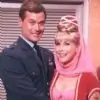




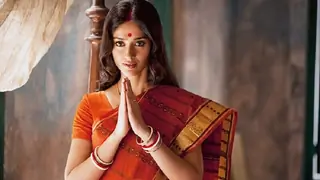
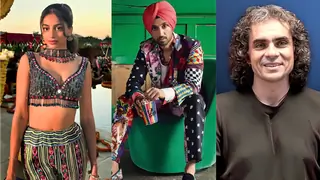
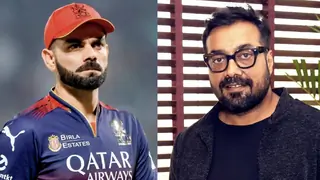



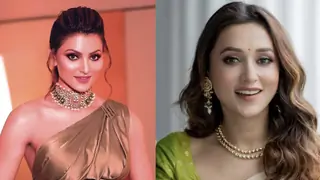







24